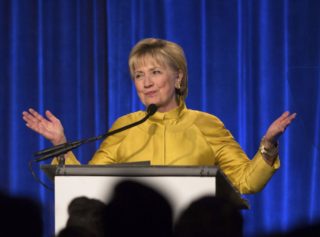The controversial WikiLeaks website has moved from exposing current political scandals to archiving historical documents from the past, at least if recent developments on the site are any guide.
WikiLeaks announced last night the creation of the Public Library of United States Diplomacy (PLUS D), which it said was an effort to digitize both secret and formerly secret documents from U.S. diplomatic history. The database includes more than 2 million leaked State Department memos and files from the 1973 to 1976 tenure of Henry Kissinger as secretary of state. The archive includes a total of about a billion words.
“The collection covers U.S. involvements in, and diplomatic or intelligence reporting on, every country on earth,” WikiLeaks states in describing the documents on its website. “It is the single most significant body of geopolitical material ever published.”
While some observers expressed alarm that WikiLeaks would no longer be breaking news of current scandals, Kristinn Hrafnsson, a spokesperson for WikiLeaks, said in a phone interview that the group hasn’t strayed from its mission.
“These are hidden treasures, and very hard for the general public to get access to,” he said. “One form of secrecy is complexity. That’s the reason why we decided to merge these files with our existing cables and put a lot of effort into making a user-friendly and accessible database.”
There was speculation that the change at WikiLeaks may be related to the lack of an anonymous submission system since late 2010. Since that time, the majority of WikiLeaks’ new material has reportedly been given by the hacker group Anonymous, rather than submitted by anonymous insiders.
One of the documents unearthed among the new memos is a cable from a U.S. diplomat describing his first impression of the late Margaret Thatcher before she became one of the most important figures of the 20th century.
Thatcher died today at the age of 87.
The diplomat describes her as “able, intelligent, articulate, hardworking and clearly ready to take charge.” But he sounded a cautionary note: “If ever she is to become Britain’s first woman prime minister, she will have to broaden her popular appeal. Her voice, her dress, her manner all bear the unmistakeable stamp of the suburban Tory matron.”

